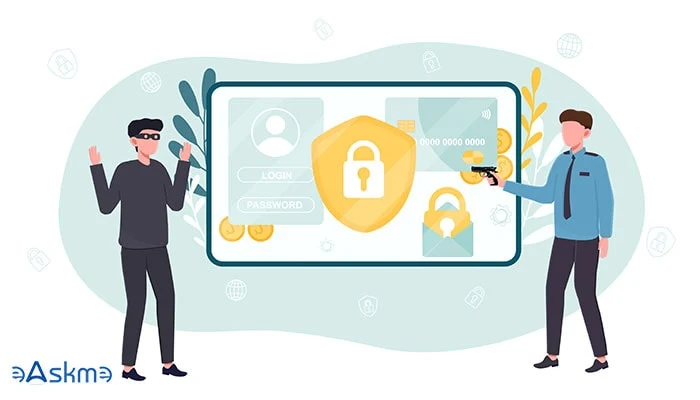There are several types of financial fraud, but we can generally understand this concept as any situation in which bank details and/or personal information are improperly used to commit crimes, causing losses to the victims, who can be both consumers and companies.
Fraud prevention and cybercrime are linked and constantly evolving.
 |
| What are Financial Frauds?: eAskme |
As professionals savvy with prevention of fraud come up with new, improved ways of defecting fraud, fraudsters, on the other hand, come up with more ways to sell information of their victims.
Scammers today use sophisticated strategies and malware to succeed in their fraudulent activities.
Check out some of the main types of theft that scammers use:
Common fraud regimes and fraudulent activity:
Data breaches occur when a fraudster breaks into a corporate network and copies information from the database.
The fraudster often looks for customer records, credit card information, or other personally identifiable information.
The scammers then sell it on the Dark Web to acquire this information. While the result is often the same, how a fraudster carries out their attack can vary.
What's more, attackers always vary their approach.
Below, we've included some of the most common types of fraudulent activity that still occur today.
What are the main types of digital fraud?
1. Phishing:
Phishing is a method in which criminals pose as acquaintances of people, e-commerce platforms, or financial institutions to steal their victims' personal and banking data.
The scam consists of creating a fake website similar to that of some legitimate companies.
Then, through messages via email, WhatsApp or SMS, criminals send a link requesting confirmation of the data.
By clicking on this link, victims are redirected to the fake website, where they end up falling for the scam and providing their details.
2. Sending fake bank receipts:
This type of digital fraud consists of creating false receipts on behalf of large companies.
The victim deposits the money in the scammers' accounts when making the payment.
Some versions of this type of fraud can even involve the creation of fake pages that simulate the company's environment, where victims are redirected to download the fake document without raising suspicions about the scam.
3. Malicious software installation:
This type of digital scam can occur when browsing suspicious websites or even clicking on links received from unreliable emails.
In these situations, users may inadvertently end up installing malicious programs, which will give third parties access to their private information, as well as personal and financial data.
4. Theft of card data:
This type of fraud can occur physically when a user has his card stolen; and virtually when the consumer enters the card details on fake, unprotected, or unsecured websites.
Scammers can make purchases in possession of this data until the user realizes and blocks the card.
According to the TransUnion survey, along with fraudulent charges, credit card theft ranks ninth among the most common types of digital fraud in the world, corresponding to 13% of cases.
What can users do to avoid being victims of financial fraud?
Financial fraud often occurs due to the carelessness or ignorance of users.
For this reason, many companies and institutions develop awareness campaigns, guiding their clients on risk behaviors and information security practices.
Among these, we have:
- Avoid registering on suspicious sites.
- Never send personal data over the phone.
- Never share personal data on social media. Be careful with very flashy offers or gifts.
- Always check the reputations of stores and sellers before making purchases online.
- Avoid putting data on shared computers and always log out of your accounts after use.
- Finally, be careful with links received by email or SMS.
- Always check the sender, where the link leads, and if in doubt, don't click.
Conclusion:
Having known what Financial frauds mean and how to prevent them, there's the need for users to consciously stay active and alert about possible frauds as new methods evolve daily to scam unsuspecting users.
Still have any question, do share via comments.
Share it with your friends and family.
Don't forget to like us FB and join the eAskme newsletter to stay tuned with us.
Other handpicked guides for you;










